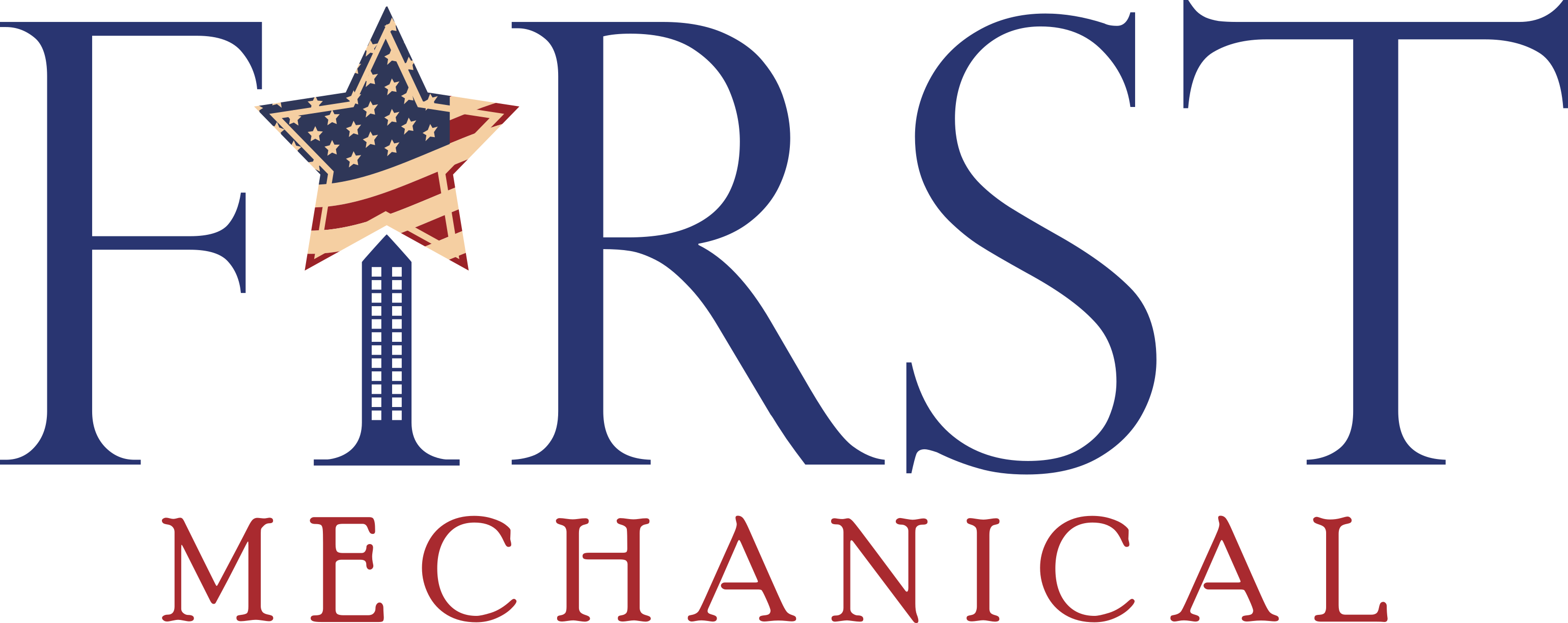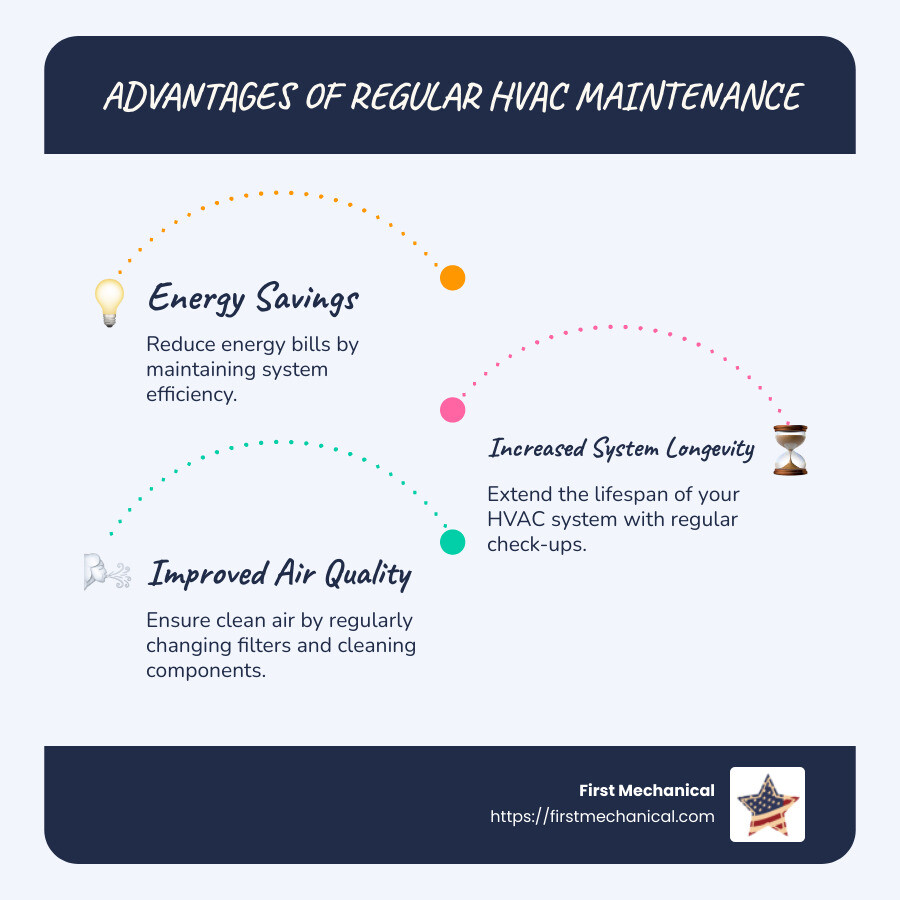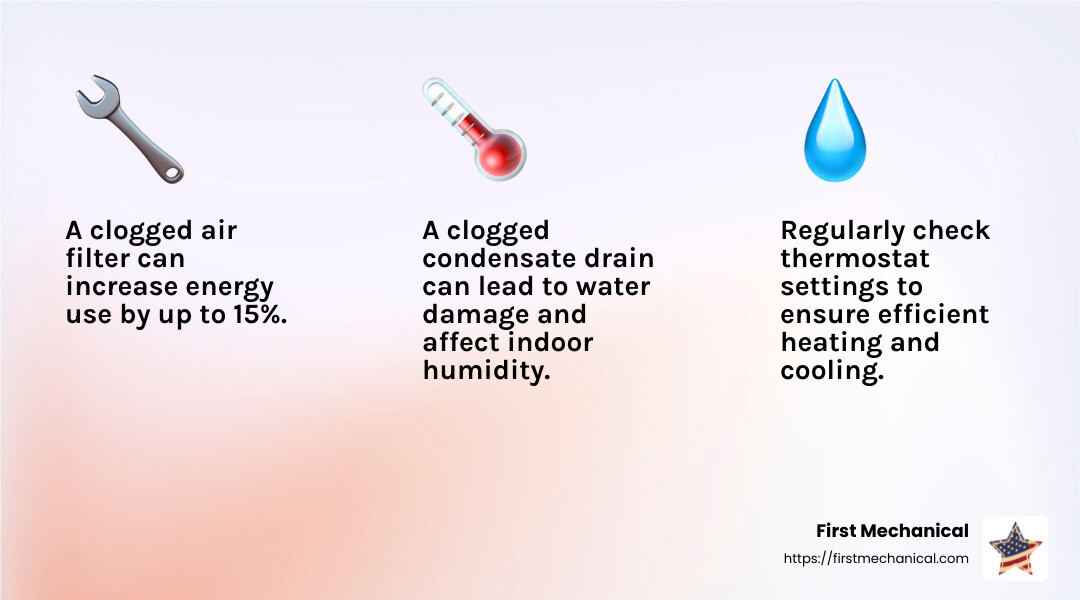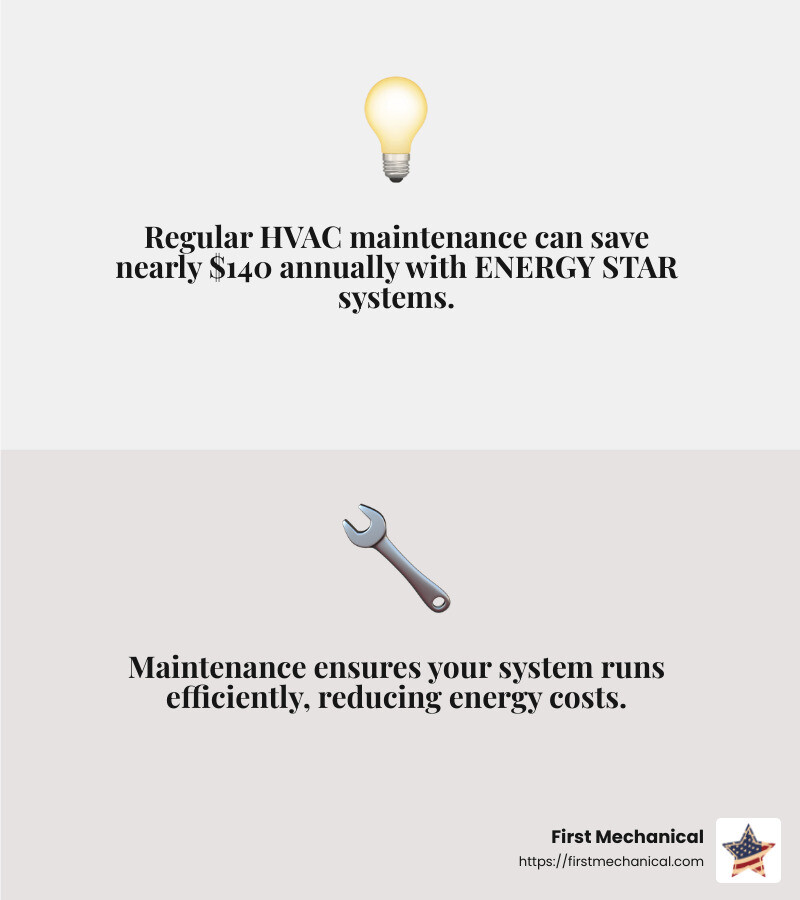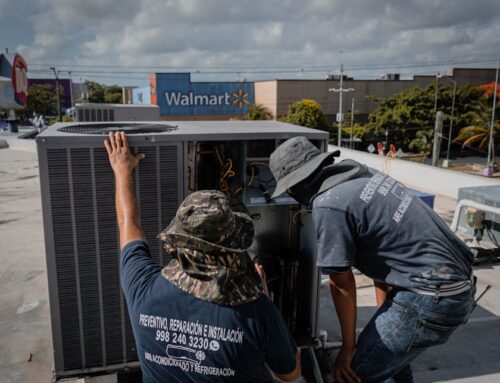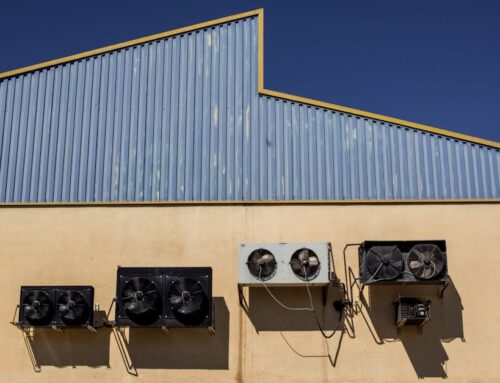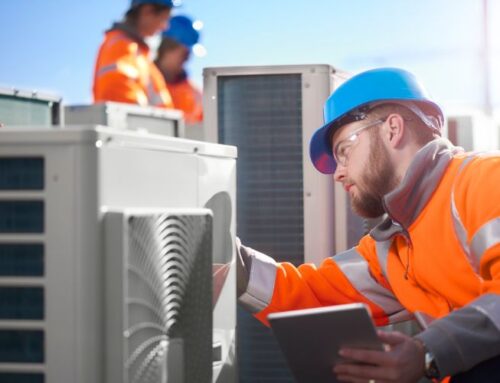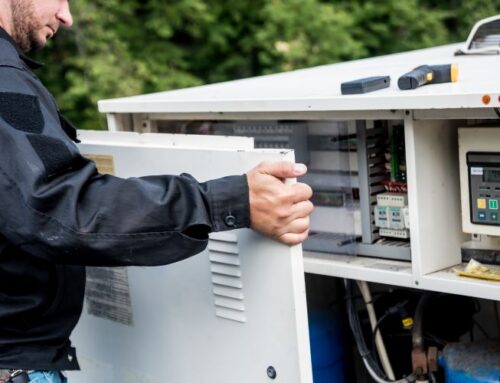
HVAC maintenance is crucial for keeping energy costs low and ensuring system efficiency. For facility managers like Frank, who oversee large commercial buildings, being proactive about HVAC maintenance can mean the difference between smooth operation and costly, disruptive breakdowns.
-
Energy Costs: Regular HVAC maintenance can significantly reduce energy bills. The average commercial building spends a substantial portion of its energy budget on heating and cooling. By maintaining your system, you ensure it runs efficiently, keeping costs down.
-
System Efficiency: Dirt and neglect can lead to system inefficiency. Ensuring regular check-ups and filter changes helps your system operate at peak performance, preventing premature failures and extending the lifespan of your equipment.
-
Importance of Maintenance: A well-maintained HVAC system provides consistent comfort and reduces the need for unexpected repairs. Scheduled maintenance not only safeguards against sudden breakdowns but also helps avoid hefty repair costs over time.
To keep your HVAC system working efficiently, implement the following:
- Schedule annual pre-season check-ups for heating and cooling systems.
- Inspect and clean or change air filters regularly.
- Invest in smart thermostats for improved control and efficiency.
By prioritizing HVAC maintenance, you ensure a comfortable environment for tenants and minimize disruptions in your facilities.
Understanding HVAC Maintenance
HVAC maintenance is not just a one-time task—it’s an ongoing commitment to ensure your system runs efficiently and reliably. There are several types of maintenance strategies that can help you achieve this, each with its own focus and benefits.
Routine Maintenance
Routine maintenance involves regular, scheduled tasks that keep your HVAC system in good working order. Think of it as the basic upkeep your system needs to stay healthy. This includes tasks like:
- Changing air filters to ensure good airflow and air quality.
- Inspecting electrical connections to prevent malfunctions.
- Lubricating moving parts to reduce wear and tear.
Routine maintenance is the foundation of a well-functioning HVAC system. By consistently performing these tasks, you can avoid many common issues that lead to inefficiency or breakdowns.
Preventative Maintenance
Preventative maintenance takes routine tasks a step further by aiming to prevent problems before they occur. This strategy is about anticipating issues and addressing them early. For example:
- Scheduling seasonal check-ups to prepare your system for peak heating or cooling seasons.
- Cleaning coils and checking refrigerant levels to maintain optimal performance.
- Inspecting and tightening gas connections to ensure safety and efficiency.
By adopting a preventative approach, you can extend the life of your HVAC system and avoid costly emergency repairs.
Predictive Maintenance
Predictive maintenance is a more advanced strategy that uses data and technology to predict when maintenance should be performed. This approach involves:
- Monitoring system performance using sensors and analytics.
- Identifying potential issues before they become serious problems.
- Scheduling maintenance based on actual system conditions rather than a fixed schedule.
Predictive maintenance allows for more precise interventions, which can save time and money by preventing unexpected failures.
Risk-Based Maintenance
Risk-based maintenance focuses on assessing the risk of failure for different components of your HVAC system and prioritizing maintenance efforts accordingly. This involves:
- Evaluating the likelihood and impact of component failures.
- Prioritizing maintenance tasks based on risk assessment.
- Allocating resources to areas with the highest potential impact on system performance.
By understanding and managing risks, you can make informed decisions about where to focus your maintenance efforts, ensuring the most critical parts of your system are always in top condition.
Understanding these different types of HVAC maintenance strategies helps you choose the best approach for your system’s needs. Whether it’s routine, preventative, predictive, or risk-based, each method plays a crucial role in maintaining system efficiency and reliability.
Key Components of HVAC Maintenance
Effective HVAC maintenance involves several key components. Each plays a critical role in ensuring your system runs smoothly and efficiently.
Air Filters
Air filters are the unsung heroes of your HVAC system. They trap dust, pollen, and other particles, keeping the air clean and your system running efficiently. Change air filters monthly to prevent clogs that can strain your system and spike energy costs. A dirty filter can increase energy use by up to 15%.
Thermostats
Your thermostat is the command center of your HVAC system. It controls heating and cooling to keep your space comfortable. Regularly check thermostat settings to ensure they are accurate and efficient. Consider upgrading to a smart thermostat for more precise control and energy savings.
Electrical Connections
Faulty electrical connections can lead to system malfunctions or even safety hazards. Tighten all electrical connections and check for signs of wear or damage. This simple step can prevent unexpected breakdowns and extend the life of your system.
Lubrication of Moving Parts
Moving parts in your HVAC system, like motors and fans, need regular lubrication to function smoothly. Lubricate these parts to reduce friction, which can cause wear and tear and increase electricity usage. Proper lubrication helps your system run more efficiently and quietly.
Condensate Drain
The condensate drain removes moisture from the system. A clogged drain can lead to water damage and affect humidity levels indoors. Regularly inspect and clean the drain to ensure it is clear and functioning properly. This can prevent costly repairs and maintain a comfortable environment.
By focusing on these key components, you can ensure your HVAC system remains efficient and reliable. Regular maintenance helps prevent issues, saving you time and money in the long run.
With a solid understanding of these components, you’re better equipped to maintain your HVAC system. Next, we’ll explore the essential tasks involved in keeping your system in top shape.
Essential HVAC Maintenance Tasks
Maintaining your HVAC system involves several critical tasks. Each one is essential to ensure your system operates efficiently and reliably.
Annual Check-Ups
Scheduling annual check-ups is a fundamental part of HVAC maintenance. These check-ups are best done in the spring for cooling systems and in the fall for heating systems. During these visits, a professional will inspect your system, identify potential issues, and make necessary adjustments to keep everything running smoothly. This proactive approach helps prevent unexpected breakdowns, especially during peak seasons.
Cleaning Coils
The evaporator and condenser coils in your HVAC system play a vital role in heat exchange. Over time, these coils can accumulate dirt and debris, reducing their efficiency. Dirty coils force the system to work harder, increasing energy costs and shortening the lifespan of the equipment. Regular cleaning of the coils ensures optimal performance and energy savings.
Refrigerant Levels
Proper refrigerant levels are crucial for your HVAC system’s efficiency. Too much or too little refrigerant can make the system less effective, leading to higher energy bills and reduced equipment life. During maintenance, have a professional check and adjust refrigerant levels as needed to ensure your system operates at its best.
Blower Components
The blower components are responsible for circulating air throughout your space. Any issues with these parts can lead to airflow problems, reducing system efficiency by up to 15%. Regular cleaning and adjustment of blower components ensure proper airflow and comfort levels in your building. This simple task helps maintain system efficiency and comfort.
Gas Connections
For systems using gas, it’s crucial to inspect gas connections, gas pressure, burner combustion, and heat exchanger. Faulty gas connections can be a fire hazard and pose health risks. Regular checks ensure safe and efficient operation of your heating system. This task is vital for the safety and performance of your HVAC system.
By focusing on these essential tasks, you can extend the life of your HVAC system, improve its efficiency, and reduce repair costs. Next, we’ll discuss the benefits of regular HVAC maintenance and how it can impact your energy savings and system longevity.
Benefits of Regular HVAC Maintenance
Regular HVAC maintenance offers several benefits that can make a significant difference in both your comfort and your wallet. Let’s explore some of the key advantages:
Energy Savings
One of the most immediate benefits of regular maintenance is energy savings. A well-maintained HVAC system runs more efficiently, which means it uses less energy to heat or cool your space. This efficiency can lead to noticeable reductions in your energy bills. According to research, maintaining your system can save you nearly $140 annually if you switch to an ENERGY STAR certified system. Regular maintenance helps ensure that your system operates at its peak efficiency, keeping your energy costs in check.
System Longevity
Every piece of machinery has a lifespan, and your HVAC system is no different. However, regular maintenance can extend the life of your system. By addressing small issues before they become major problems, you can avoid premature system failures. Think of it like changing the oil in your car; regular upkeep helps prevent breakdowns and keeps your system running smoothly for years to come. This means you can delay the need for a costly replacement, saving you money in the long run.
Improved Air Quality
Your HVAC system plays a crucial role in maintaining the air quality within your building. Regular maintenance tasks, like changing air filters and cleaning coils, help keep your air free of dust, allergens, and pollutants. This is especially important for those with allergies or respiratory issues. Clean air filters and components ensure that the air circulating in your building is fresh and healthy, contributing to a better indoor environment.
Reduced Repair Costs
By catching and fixing minor issues early, regular maintenance can help you avoid costly repairs. Small problems, if left unattended, can escalate into major repairs that are both expensive and inconvenient. Routine maintenance checks allow technicians to identify and resolve issues before they lead to bigger, more expensive problems. This proactive approach not only saves you money but also ensures that your system runs smoothly without unexpected interruptions.
In summary, regular HVAC maintenance is an investment that pays off in multiple ways. From energy savings and system longevity to improved air quality and reduced repair costs, the benefits are clear. Next, we’ll address some frequently asked questions about HVAC maintenance to help you understand how to keep your system in top shape.
Frequently Asked Questions about HVAC Maintenance
What is routine maintenance for HVAC?
Routine HVAC maintenance involves regular check-ups and tasks that keep your system running smoothly. It includes inspecting and cleaning air filters, checking electrical connections, lubricating moving parts, and ensuring that thermostats are working correctly. Think of it as a health check-up for your HVAC system, similar to how you might schedule routine plumbing or electrical inspections in your building. Regular maintenance helps prevent unexpected breakdowns and keeps your system efficient.
How often is HVAC maintenance needed?
HVAC maintenance should be performed at least once a year. However, the best practice is to schedule maintenance twice yearly—once in the spring for cooling systems and once in the fall for heating systems. This seasonal maintenance ensures your system is ready for the peak demands of summer and winter. Regular check-ups help identify potential issues early, providing peace of mind and preventing costly repairs later.
What are the costs associated with HVAC maintenance?
The cost of HVAC maintenance can vary depending on several factors, such as the size of your system, its age, and the complexity of the tasks involved. On average, you might expect to spend between $100 to $300 for a standard maintenance visit. If your system requires more extensive work or if you opt for a comprehensive maintenance plan, costs can increase. However, investing in regular maintenance can save you money in the long run by reducing the need for expensive repairs and improving system efficiency.
In conclusion, regular HVAC maintenance is crucial for ensuring your system operates efficiently and lasts longer. By staying proactive with routine check-ups and understanding the costs involved, you can maintain a comfortable and healthy environment in your building year-round.
Conclusion
At First Mechanical, we take pride in offering comprehensive HVAC services that cater to the unique needs of our clients. Our expertise in commercial HVAC solutions ensures that your system is not only installed or repaired with precision but also maintained for optimal performance.
Custom solutions are at the heart of what we do. We understand that every business has different requirements, and we tailor our services to meet those specific needs. Whether it’s a small office or a large commercial complex, our team is equipped to handle it all with efficiency and professionalism.
Our commitment to fast response times means that you can rely on us for emergency repairs, minimizing downtime and keeping your business running smoothly. With locations in Tampa, FL, and Melbourne, FL, we’re always nearby to provide the support you need.
In summary, choosing First Mechanical for your HVAC maintenance needs means choosing reliability, expertise, and personalized service. Keep your commercial space comfortable and energy-efficient with our top-notch maintenance programs. Let us help you maximize the lifespan and performance of your HVAC system, ensuring a safe and pleasant environment for everyone.
